Kensington news: Breakfast with Santa, ‘Deck the Walls’ art show and more
Hey there, neighbors. Coming up this week, Santa is picture-ready for free photos at Scanlon Rec Center, local artists are
Residents are questioning whether the increased enforcement has improved quality of life in their neighborhood.

As city officials announced Thursday that narcotics arrests in Kensington have more than doubled since March, residents at a Harrowgate community meeting questioned whether the increased enforcement has improved quality of life in their neighborhood.
Residents continued to express concerns about the number of people living outside and using drugs, often in front of their homes. Some called for stricter police enforcement, while others pushed for increased outreach that would connect people to services, including housing.
“Kensington is a primary focus of this administration – it’s just a fact,” said Chief Public Safety Director Adam Geer. “It takes up, therefore, a lot of our work, and we are working on things.”
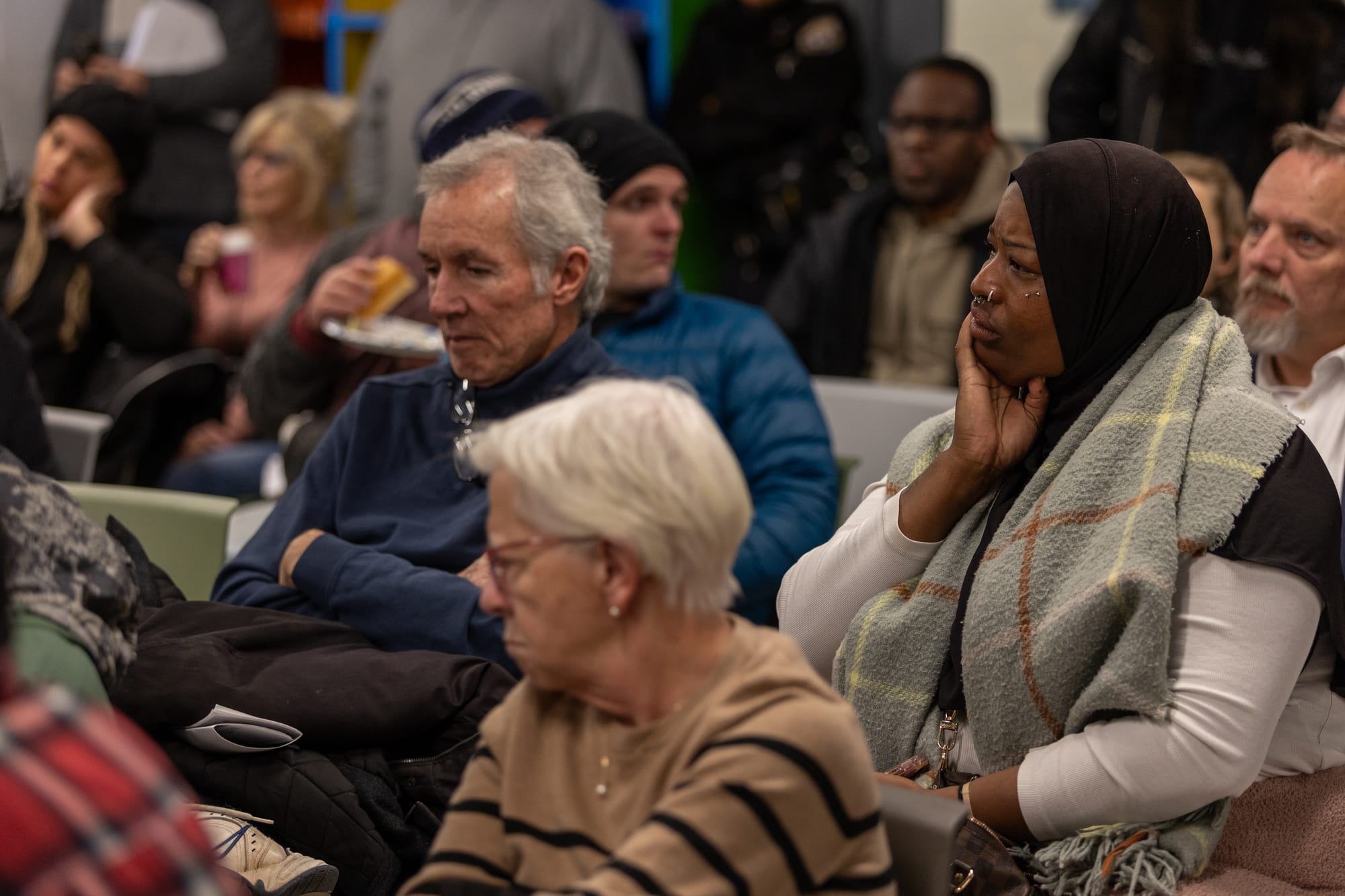
Narcotics arrests in the Philadelphia Police Department’s 24th District have increased by 107% since the spring, according to Deputy Police Commissioner Pedro Rosario. Across the East Division – which includes the 24th, 25th, and 26th districts – narcotics arrests are up 93%.
“One of the charges that the police commissioner has been getting on us about is to take advantage of the cold weather,” said Rosario. “‘Go after more open air. Go after the encampments.’”
However, Rosario noted that the police department can’t routinely facilitate large-scale sweeps due to the strain it places on city resources.
“[We] can’t afford to send 20 cops to accompany people at the hospital,” he said. “We're pulling officers from all over the city … so that way we're not pulling our man power off the street.”
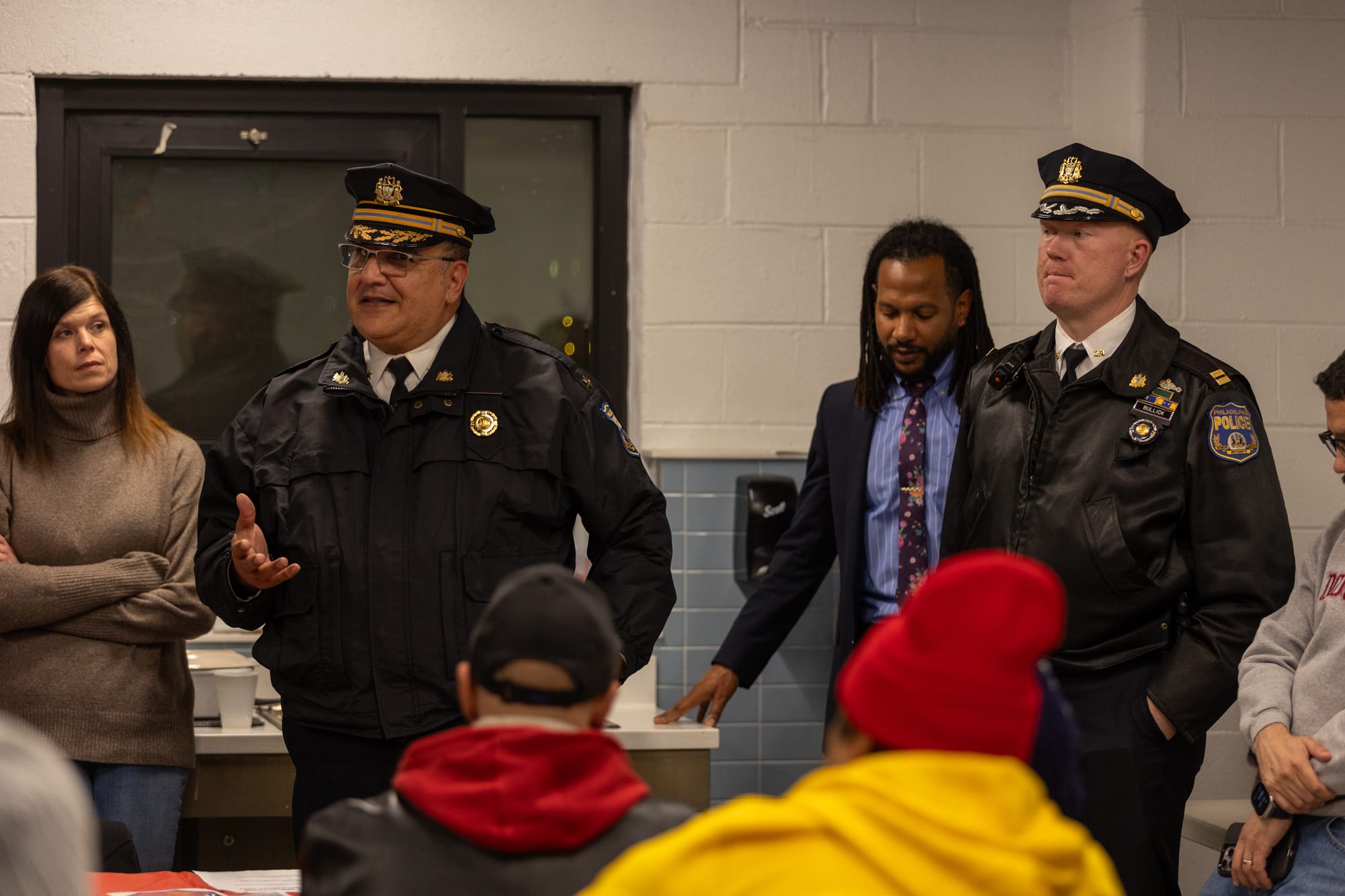
Rosario also mentioned the Riverview Wellness Village, a forthcoming drug treatment facility near the city’s prison complex on State Road in North Philadelphia.
“There may be legal ramifications,” said Rosario, of people who choose not to accept help. “And if they do decide to accept help, which is always our number one, we hope that we get them to the path of wellness.”
The strategy he described is reminiscent of the “triage center” concept proposed by the Kensington Caucus, a group of councilmembers including Quetcy Lozada (District 7), Mike Driscoll (District 6), Mark Squilla (District 1), and Jim Harriety (at-large).
“It's an either/or proposition,” Driscoll told Kensington Voice in a January interview. “You're either going to treatment, or you're going to jail.”
In a similar vein, Capt. Christopher Bullick of the 24th Police District previously mentioned a “fast-track court” for people arrested during future police sweeps at a Harrowgate meeting on Sept. 5.
The District Attorney’s Office declined to comment on the Riverview intervention mentioned by Rosario this week.
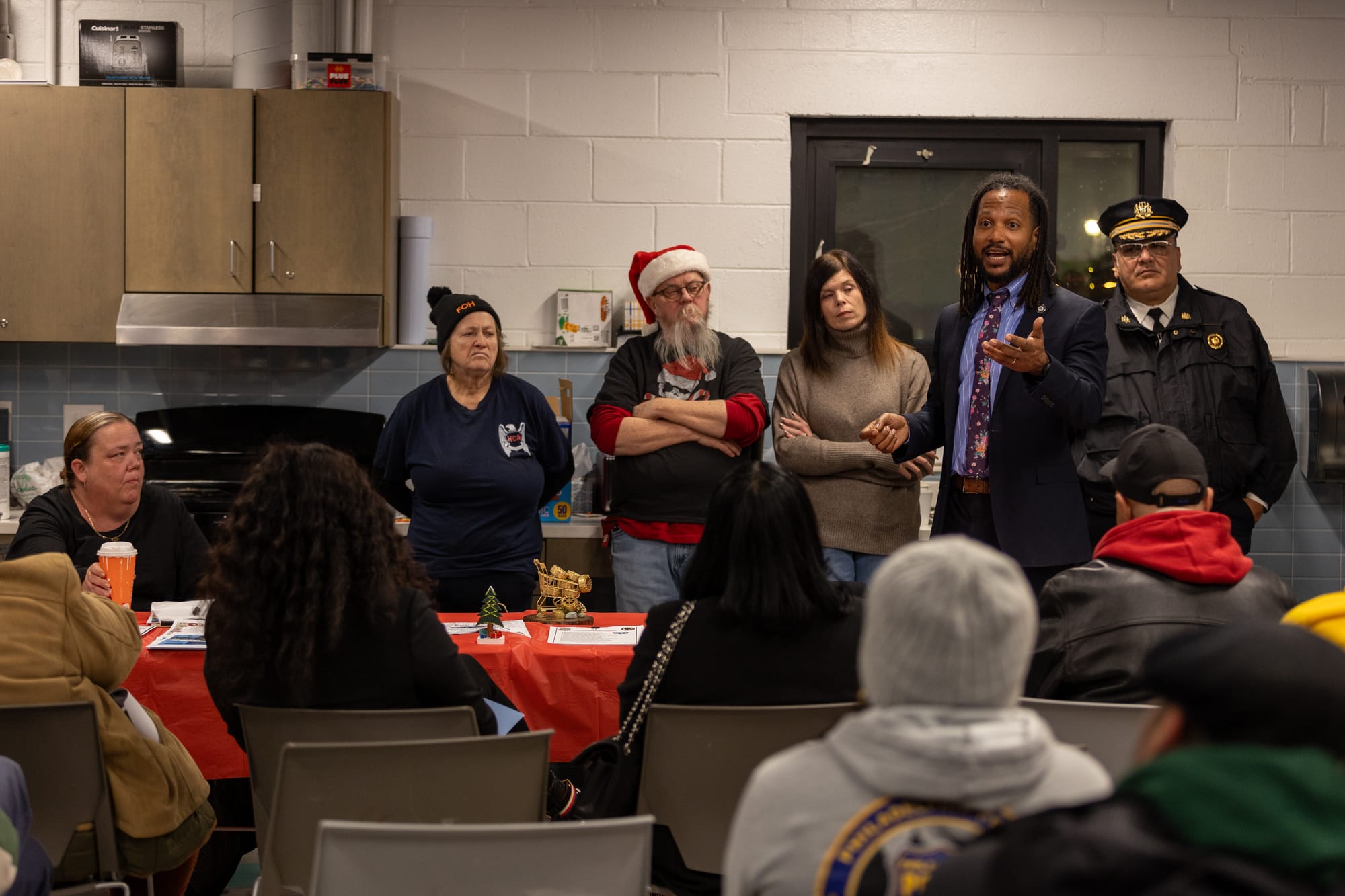
City officials also provided updates on the city’s “nuisance fire task force,” which launched in November to identify and extinguish rubbish fires often started by people living outdoors in Kensington.
The task force has extinguished 63 fires to date, Geer said.
The multi-agency effort includes the fire department, police, and sanitation workers, with support from Merakey for connecting and transporting individuals to services. Operating daily from 8 p.m. to 4 a.m., the task force uses a refurbished fire truck for its operations.
The task force has offered services to everyone it has encountered, according to Amaury Avalos, spokesperson for the Office of Public Safety.
However, Avalos said the city is still coordinating data collection and could not confirm how many individuals had accepted or received services.
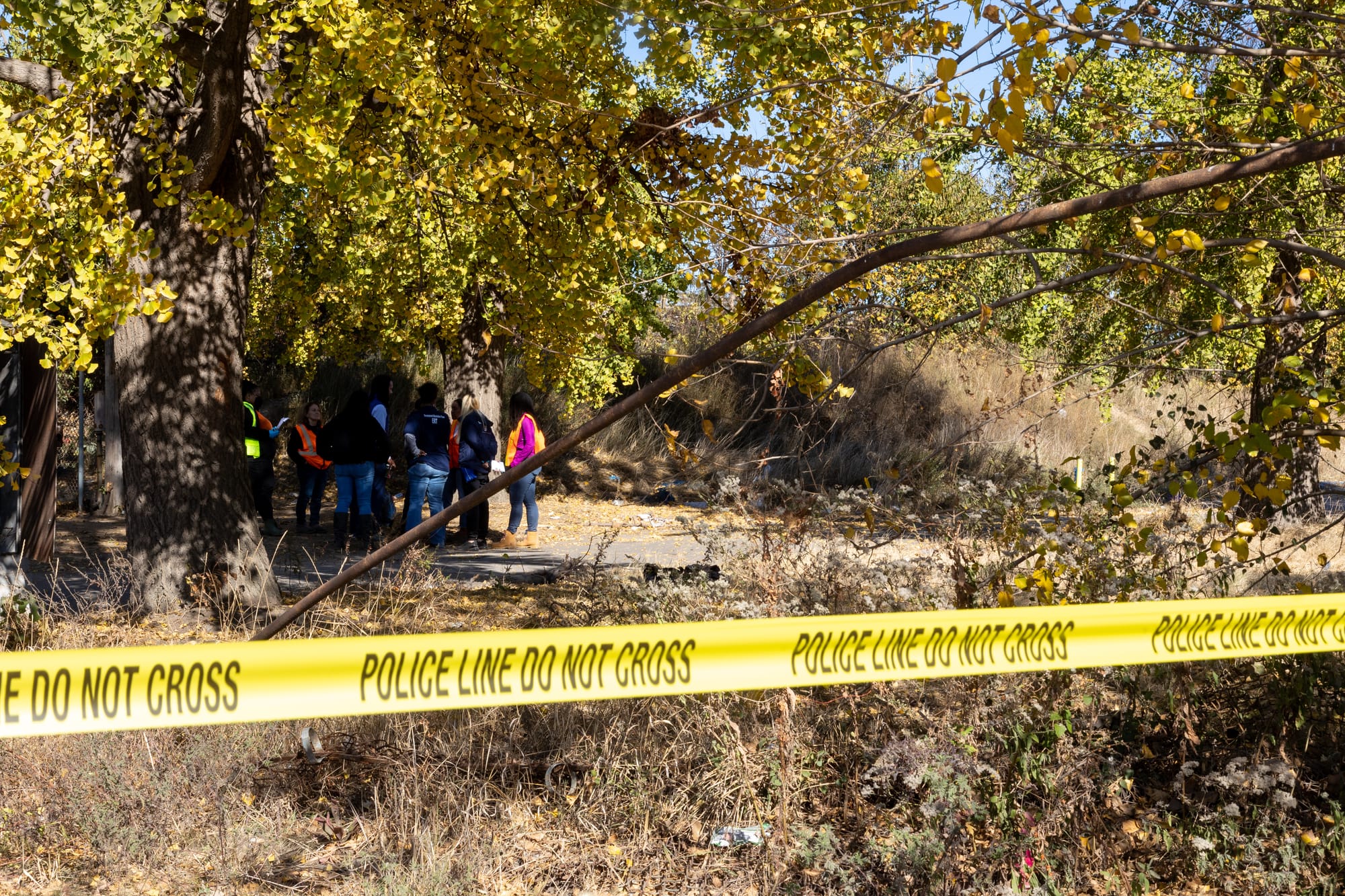
Geer said 10 out of 14 people displaced during a recent encampment resolution along I-95 and Allegheny Avenue “accepted housing.”
The remaining four were two couples with pets, which Geer identified as barriers to shelter access.
“They don't want to just leave their pet in the cold,” he said.
When community members questioned why shelters could not accommodate couples and pets,
Geer said he couldn’t speak for the “wellness ecosystem” overseen by the city’s Managing Director’s Office but said that his office is raising those concerns.
“It's just as simple as allowing a pet. This is stuff we can do. This isn't rocket science,” he said.
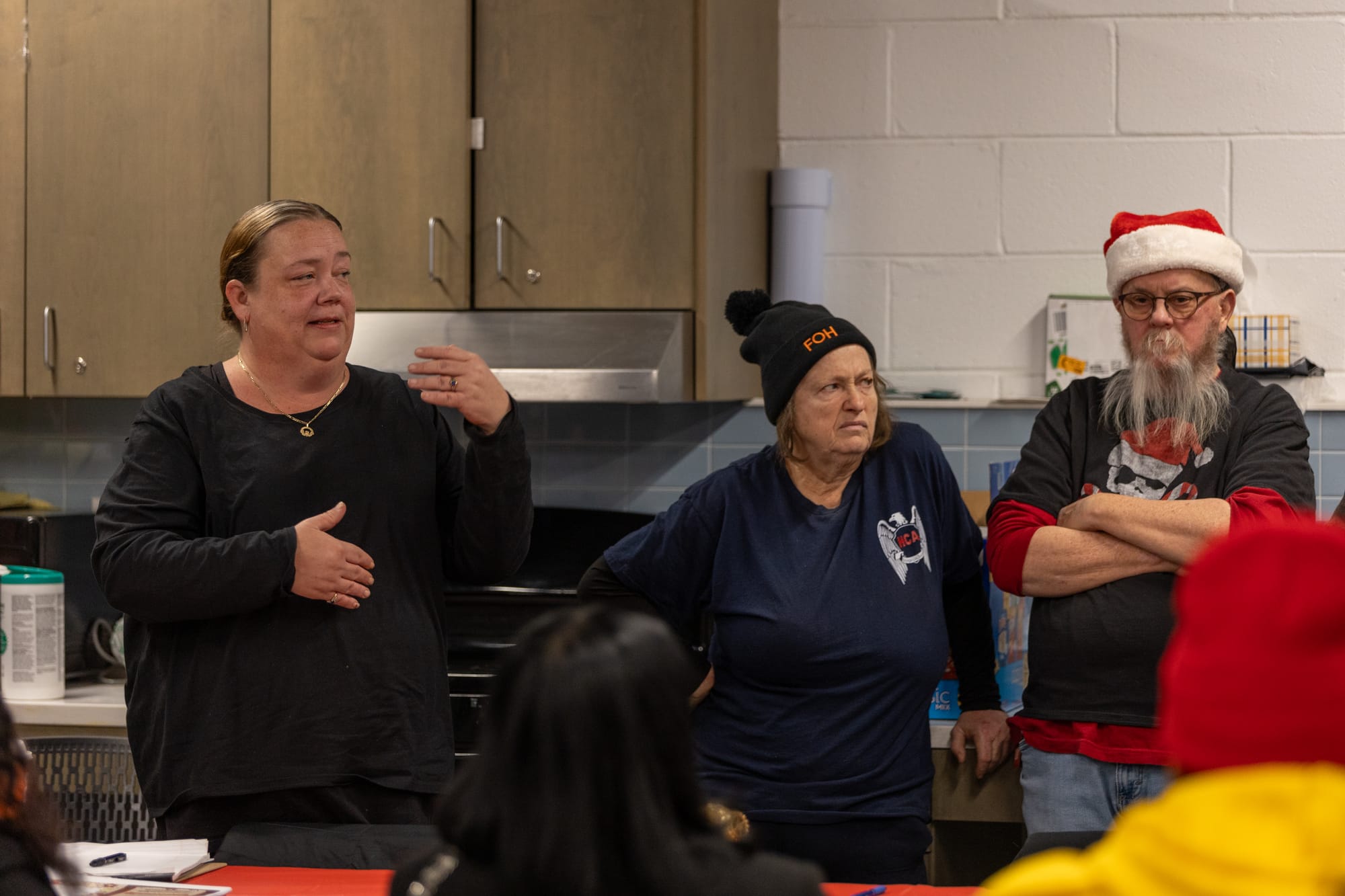
Harrowgate Resident Alfred Klosterman called for stronger police enforcement against outdoor drug use in the neighborhood.
“All the [police officers] do is chase them, and the next day, the camp is back,” he said. “They're not gone permanently; they're not getting arrested.”
Geer asked Klosterman for the location and committed to sending outreach workers from the Office of Homeless Services to engage people. He also emphasized that persuading people to accept services often requires “consistent engagement.”
Shannon Farrell, Harrowgate Civic Association president, voiced frustration with what she described as inadequate outreach.
She said she has heard for years that it takes “consistent outreach” but that “nobody is consistently engaging them.”
“Who the hell is engaging them? They’re afraid of police officers,” she said.
Geer acknowledged the need for more outreach workers.
“We understand that that is a need, and we are thinking of ways that we can deliver on that,” he said.
Neftali Ramos, the city’s Kensington coordinator, said the city continues to use its “Stranded Traveler Assistance” program, which provides one-way bus tickets to help people return to their hometowns.
“We put them on a bus, we put them on a plane, whatever it is … a train,” Ramos said.
Marnie Aument-Loughrey, who works under Ramos, corrected him.
“A bus, a bus,” she said.
Have any questions, comments, or concerns about this story? Send an email to editors@kensingtonvoice.com.

Free accountability journalism, community news, & local resources delivered weekly to your inbox.